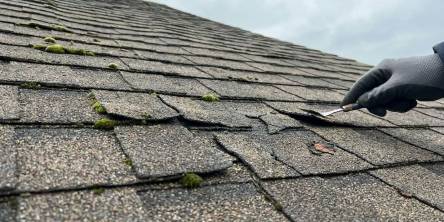The Ultimate Battle of Cost Effectiveness: Dishwashers vs Hand Washing

We live in a technological era where almost everything is automated or it will eventually become. In that line of thought, handwashing dishes are a long-forgotten task due to the dishwashing machine. An unpopular fact, the dishwashing machine was invented in the 1920s, but it wasn't very popular with society until the 1950s when it became more common in wealthy residences. It wasn't until the late 1970s that the dishwashing machine became a regular sight in every household.
Dishwashing, everybody knows what it is, if not Google it. Nowadays, you can do it with a dishwasher (the machine) or by hand. Using your hands, grab a sponge and detergent, wash, and then rinse with clean water. Some people use rubber gloves because they are sensitive to either the cleaning detergent or hot water. Using a dishwashing machine is a popular luxury that most people take as a given and don't appreciate at all. Some households don't have dishwashing machines, as shocking as it might seem.
 When I was growing up my parents always made me do the dishes. It was a chore that I literally hated and detested. My parent's words were that this would teach me responsibilities, which I was naturally lacking at the time. I shared my 'pleasant' experiences with my friends, and some of them had the same 'torture' from their folks, but some had a dishwashing machine. That was when I heard of such a contraption, a machine that washes the dishes on its own. At that moment, I thought to myself that my dishwashing days are over and I'll use my time for something better. My parents killed that notion flat out without giving it a second thought – it's too expensive, and we can't afford it. For the time being, I had no idea if we could really afford it or not, but that was my experience. Several years later, I still wash my dishes on my own, it's how I was brought up, and I haven't given a second thought about machines until now.
When I was growing up my parents always made me do the dishes. It was a chore that I literally hated and detested. My parent's words were that this would teach me responsibilities, which I was naturally lacking at the time. I shared my 'pleasant' experiences with my friends, and some of them had the same 'torture' from their folks, but some had a dishwashing machine. That was when I heard of such a contraption, a machine that washes the dishes on its own. At that moment, I thought to myself that my dishwashing days are over and I'll use my time for something better. My parents killed that notion flat out without giving it a second thought – it's too expensive, and we can't afford it. For the time being, I had no idea if we could really afford it or not, but that was my experience. Several years later, I still wash my dishes on my own, it's how I was brought up, and I haven't given a second thought about machines until now.
Let's dig into washing dishes by hand. Have you ever asked yourself this - when the bubbles disappear from the hot water pot, is it still effective? Understand that with soap, I mean cleaning detergent, and its purpose is to emulsify grease from the dishes. It was my assumption that detergents form bubbles, but once they are gone it implies that all the detergent has been used and it's time to add more. That sounds like a typical notion for people that wash dishes by hand, right? This is where dishwashing by hand differs so much from dishwashers.
Practically everybody uses too much detergent. If there are bubbles forming after applying, then it's too much. The bubbles aren't necessary for the detergent to do its job correctly, more like it's necessary for us to know that we have applied enough. Actually, cleaning detergents are designed to produce bubbles when you've applied too much, not the other way around. When the bubbles disappear, that doesn't mean the detergent has been used up. As long as the grease gets off the dishes, the soap does its job correctly.
 Now the question is which is most cost-effective, dishwashers or dishwashing by hand. If you're still washing your dishes by hand, you're actually wasting more than your time. What do you save, and how is that calculated? Let's use the following baseline, water flows out your tap at the rate of 3 to 5 gallons (13 to 22 liters) per minute for a single load – all the rest of the examples will be per single load. You can approximately calculate your average water consumption judging by the time you wash the dishes by hand if it's too hard for you to try this dishwasher vs. washing up calculator. Regular hand washing consumes 2.5 kW of electricity and 27 gallons (122 liters) of water; however, if you hand wash efficiently, it goes down to 1 kW and 8 gallons (36 liters). A dishwashing machine can get even better results, but to ensure that, it needs to be certified by Energy Star, one of their new models. For comparison, an Energy Star-certified dishwasher consumes water of around 3-5 gallons (13-22 liters) and 1 kW of electricity.
Now the question is which is most cost-effective, dishwashers or dishwashing by hand. If you're still washing your dishes by hand, you're actually wasting more than your time. What do you save, and how is that calculated? Let's use the following baseline, water flows out your tap at the rate of 3 to 5 gallons (13 to 22 liters) per minute for a single load – all the rest of the examples will be per single load. You can approximately calculate your average water consumption judging by the time you wash the dishes by hand if it's too hard for you to try this dishwasher vs. washing up calculator. Regular hand washing consumes 2.5 kW of electricity and 27 gallons (122 liters) of water; however, if you hand wash efficiently, it goes down to 1 kW and 8 gallons (36 liters). A dishwashing machine can get even better results, but to ensure that, it needs to be certified by Energy Star, one of their new models. For comparison, an Energy Star-certified dishwasher consumes water of around 3-5 gallons (13-22 liters) and 1 kW of electricity.
Is a dishwasher more cost-effective, indeed it is but is it more efficient, that is another story? Dishwashing machines are owned by people with busier and busier time schedules, and dishwashing is only a time-consuming task for which they don't have the time. It depends on how much you value your time. I personally don't trust dishwashers, I've seen results, and not all are satisfactory. The dishwashers might really be more cost-effective, but in my opinion, not efficient enough.
Similar Articles
We all know that roofs don’t last forever, but how do you know when it's really time to replace yours? After all, your roof is out of sight, out of mind, right?
As winter settles in and temperatures drop, families across the country brace themselves for the inevitable spike in energy bills.
Wooden floors have long been the subject of admiration for their classic beauty, natural warmth, and strength.
When it comes to giving your home a fresh coat of paint, most homeowners focus on choosing the perfect color and finish.
The holiday season transforms neighbourhoods into glowing wonderlands, but today's homeowners are moving beyond the traditional approach of simply stringing lights wherever they fit.
City homes face a constant challenge around outdoor space. Gardens are small or nonexistent, balconies are narrow, and any outdoor area feels precious.
Anyone who's worked in a commercial kitchen knows they operate with an efficiency that home kitchens rarely match.
When you want to transform your home with a complete makeover, you must find the best ways to save money. Let's check some cost-saving tips for renovating.
Handrails are one of the few things that merge safety, fashion, and structural importance in a home most naturally when the home is being either designed or renovated.









